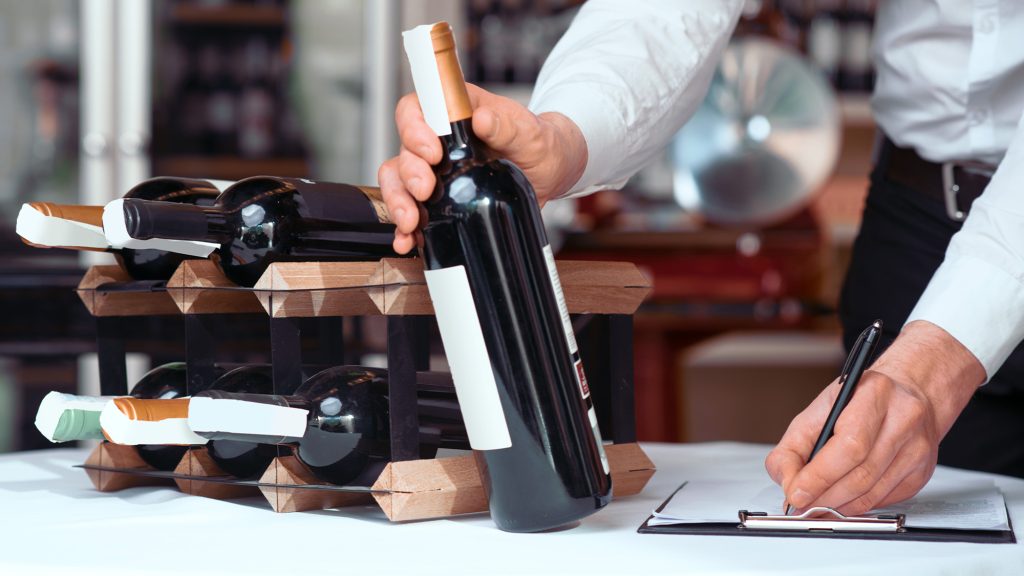Each year, the wine industry sees trends come and go. And while we’re anxious to see what fads pop up in 2025 — what will be the next chillable red or orange wine? — there are also some market patterns that industry pros are eager to see out the door.
One hot topic that’s been central to the conversation over the past few years is natural wine. So where do wine pros stand on the natural wine debate now? Are they hoping to see it take over more lists? Or is its time in the sun over? And are there any particular grape varieties, wine styles, or regions that somms are just longing to cross off the menu?
To catch a glimpse at the future of wine, we asked eight wine professionals what trend they want to see disappear in 2025.
Wines that should disappear from wine lists this year, according to somms:
Fake natural wine
Bulk wines
Overly commercialized wines
Wines with unclear origins
Unstable wines
Pretentious wines (and Tavel rosé)
Wines marketed as “natural”
“Natural wine” menu sections
“Fake natural wine. Natural wine has entered its mall era, and the vagaries of consumerism have taken their toll: Too many insipid wines with kooky labels are flooding the market and muddying the water. Is that bottle of natural wine made by a talented winemaker with reverence for low-impact agriculture, or is it a decidedly mid commodity being sold to you by a content creator riding the coattails of other people’s labor? Both can exist, but they aren’t the same.” —Lauren Friel, owner and wine director, Dear Annie, Cambridge, Mass.
“I believe it’s important to focus on sustainably made wines. I’d love to see a shift away from overly commercialized, mass-produced options that currently dominate much of the market. Consumers are increasingly drawn to environmentally conscious wines that reflect the true character of their regions.” —Lauren Hoey, wine director, Manuela, New York City
“Anything made in bulk in factory-like wineries, where the wine is manipulated to be the same year in and year out and a huge portion of the budget goes to advertising. With so many small, family-run wineries out there focused on making real, terroir-driven wine, there really isn’t any need to showcase wines made by huge corporations! Many of these small-production wines are less expensive, they have a real story, and are made by people who live and work on the land where the grapes are grown.” —Brian Butterfield, food and beverage director, Kindred Fare, Geneva, N.Y.
“In 2025, wine lists should be mindful of wines with uncertain or unclear origins. Understanding the methods and labor practices behind a wine is just as important as its flavor profile. If this vital information is not available or transparent, it’s often best to reconsider including that wine on the list.” —Karina Iglesias, wine expert, Otto & Pepe, Miami
“Unstable wines with no sense of place. Wines need to be made well and serve-able if they are going to be on a restaurant wine list. I love a good story but I love good winemaking more.” —Kristen Goceljak, wine director, Kent Hospitality Group (Saga, Crown Shy, Time and Tide, Overstory), NYC
“In what feels like an emerging new world order in the post-pandemic restaurant and bar scene, I feel as though all beverage decisions should be made without ego and to simply make folks happy. Collaboration over competition and discovering new ways to be informative without pretension, especially in the wine world. All that said, Tavel rosé should be dumped from the villa.” —Chris Lingua, owner, Sauvage, Phoenix
“I don’t think there is any one wine that should not appear on a list, but rather I believe that each restaurant’s wine program is unique and there is a most likely place for all wines somewhere out there. For example, my wine program is European wine-driven, so having Southern Hemisphere wine on my list doesn’t make sense at this point, but I’m sure there are many restaurants that are either global or more niche that could benefit from those wines. Do I love organic and biodynamic wines? Absolutely, I want them all over my list. Do I not care so much for wines that are marketed as ‘natural’ and carry those typical natural wine characteristics? Definitely not, but I do believe there is a place for those types of natural wines and many programs that benefit from their presence on their lists.” —Robin Wright, wine director, Cafe Carmellini, NYC
“Personally, I don’t think any particular wine, or style of wine, should be removed from wine lists. Let the beverage director speak to the menu and their palate, and pair accordingly. However, I would love to never see a ‘natural wine’ section or asterisk on a wine list again. If you choose to sell natural wine, it shouldn’t be a category like red/white/sparkling. If you choose to highlight natural wine it should be because you care about how the wine is farmed and made. And if that’s the case, then industrially farmed and conventionally made wines shouldn’t even be in the conversation.” —Heather LaVine, owner, Golden Hour Wine and Quicksand Bar à Vin, Orlando, Fla.
*Image retrieved from zinkevych – stock.adobe.com
The article We Asked 8 Somms: Which Wine Should Disappear From Lists This Year? (2025) appeared first on VinePair.
